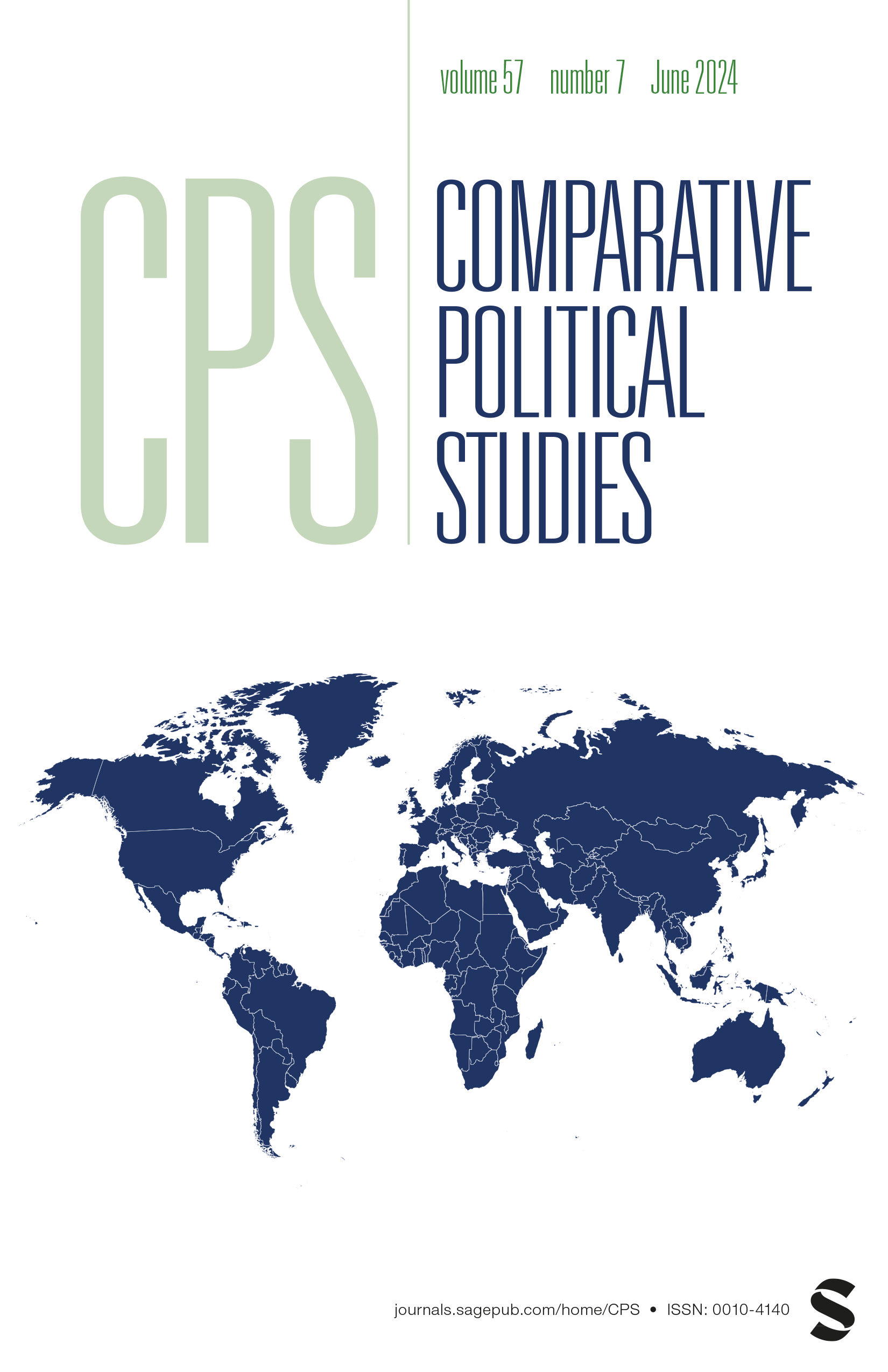最差的一群:可视化比较基准改变了对政府绩效的评价
IF 4.2
1区 社会学
Q1 POLITICAL SCIENCE
引用次数: 0
摘要
标杆理论认为,选民会利用有关其他国家表现的信息(通常是通过经验或媒体获得的有关经济的信息)来评价本国政府。然而,现有的观察证据相对脆弱,难以区分人们是如何变得更加了解其他国家的。通过预先登记的实验,我们向英国受访者展示了一张图表,该图表单独或与死亡人数较少的欧洲国家一起显示了英国异常高的 COVID-19 累计死亡人数。模仿广泛传播的图表,这种视觉处理增强了我们研究的外部有效性,并检验了基于媒体的基准测试渠道。与预先登记的预期一致,与仅英国的数据相比,将英国视为 "最糟糕的国家 "会引起更多对政府的负面评价。出乎意料的是,党派倾向并没有缓和信息效应,而探索性测试表明,视觉效果在政治信任度高的受访者中产生了更多负面评价。我们的研究表明,可视化形式的国际比较可以改变国内舆论,而且是在严格意义上的经济表现之外。本文章由计算机程序翻译,如有差异,请以英文原文为准。
Worst of the Bunch: Visual Comparative Benchmarks Change Evaluations of Government Performance
Benchmarking theories argue voters use information about other countries’ performances, usually on the economy and obtained through experience or media, to evaluate their own governments. Yet existing observational evidence is relatively fragile and struggles to distinguish how people become more knowledgeable. Using a pre-registered experiment, we showed UK respondents a chart displaying the UK’s exceptionally high cumulative COVID-19 deaths either in isolation or alongside European countries with fewer deaths. Mimicking widely-circulated charts, this visual treatment enhances our study’s external validity and tests the media-based channel for benchmarking. Aligned with pre-registered expectations, seeing the UK as “worst of the bunch” compared to UK-only data caused more negative government evaluations. Unexpectedly, partisanship did not moderate the information effects, while exploratory tests revealed the visuals generated more negative evaluations among respondents with high political trust. Our study shows international comparisons in visual forms can change domestic opinion, and on matters beyond strictly economic performance.
求助全文
通过发布文献求助,成功后即可免费获取论文全文。
去求助
来源期刊

Comparative Political Studies
POLITICAL SCIENCE-
CiteScore
8.40
自引率
4.00%
发文量
69
期刊介绍:
Comparative Political Studies is a journal of social and political science which publishes scholarly work on comparative politics at both the cross-national and intra-national levels. We are particularly interested in articles which have an innovative theoretical argument and are based on sound and original empirical research. We also encourage submissions about comparative methodology, particularly when methodological arguments are closely linked with substantive issues in the field.
 求助内容:
求助内容: 应助结果提醒方式:
应助结果提醒方式:


